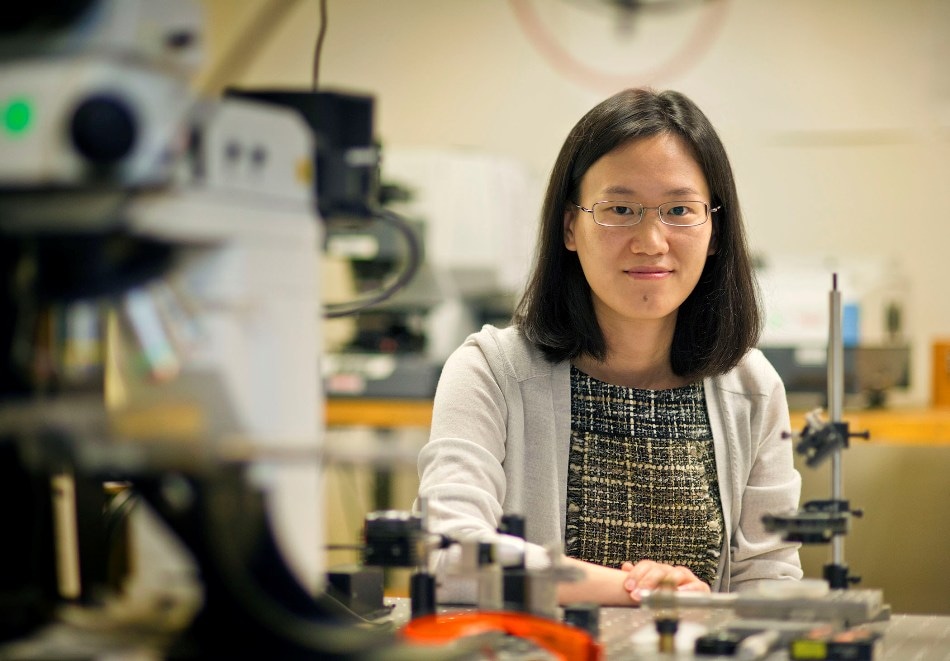Oct 12 2017
Existing methods of detecting lung cancer comprise of invasive biopsies and imaging methods, which can be painful and stressful for patients.
 Yuze "Alice" Sun, an assistant professor in UTA's Electrical Engineering Department, has received a $199,999 grant from the Cancer Prevention and Research Institute of Texas. CREDIT: UTA
Yuze "Alice" Sun, an assistant professor in UTA's Electrical Engineering Department, has received a $199,999 grant from the Cancer Prevention and Research Institute of Texas. CREDIT: UTA
A $199,999 grant from the Cancer Prevention and Research Institute of Texas has been given to Yuze “Alice” Sun, an Assistant Professor in the Electrical Engineering Department at The University of Texas at Arlington, in order to develop a non-invasive means for detecting early stage lung cancer via biomarkers in a patient’s breath instead, thus saving the patient from extended waits for a diagnosis and needle biopsies.
Sun aims at developing an optofluidic gas-analyzing microsystem in order to separate and profile chemical compounds in human exhaled breath, and then plans to search for those that may specify lung cancer. Eventually, the new technology may offer a noninvasive way for Doctors to screen patients for lung cancer at an initial stage, when the treatment is the most effective.
The key component is determining how to process and distinguish the thousands of chemicals in the breath. Some are biomarkers for lung cancer, but they are in very low concentrations and are difficult to detect. This grant will allow me to develop a sensing technology and prototype a device to look at human exhaled breath and determine with high confidence if there is a correlation between these biomarkers and the presence of lung cancer. If I am successful, the next step would be to collaborate with doctors to fully develop a device that could be used in clinics.
Yuze “Alice” Sun, Assistant Professor in the Electrical Engineering Department, The University of Texas at Arlington
CPRIT grants reward high-impact, high-risk research that can lead to key breakthroughs in detecting and treating cancer.
Sun’s research is considered to be an example of innovative thinking in the field of health and the human condition, a theme in UTA’s Strategic Plan 2020: Bold Solutions | Global Impact, said Jonathan Bredow, chair of the Department of Electrical Engineering.
“This grant is exciting because of the potential discoveries that could result from it. Dr. Sun has devoted a lot of time and energy to finding ways to detect cancer earlier, faster and in ways that keep patients comfort at the forefront. Her work is expanding the boundaries of photonics applications in healthcare,” Bredow said.
A National Science Foundation Faculty Early Career Development, or CAREER, Award in 2016 was earned by Sun in order to develop an optofluidic laser for detecting biomarkers for cancer diagnosis and probably other genetic disorders at the cellular and molecular level. She is also the key investigator on another NSF grant in order to study gas separation and sensing with incorporated nanofluidics and nanophotonics.